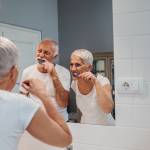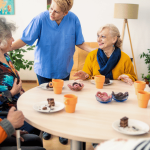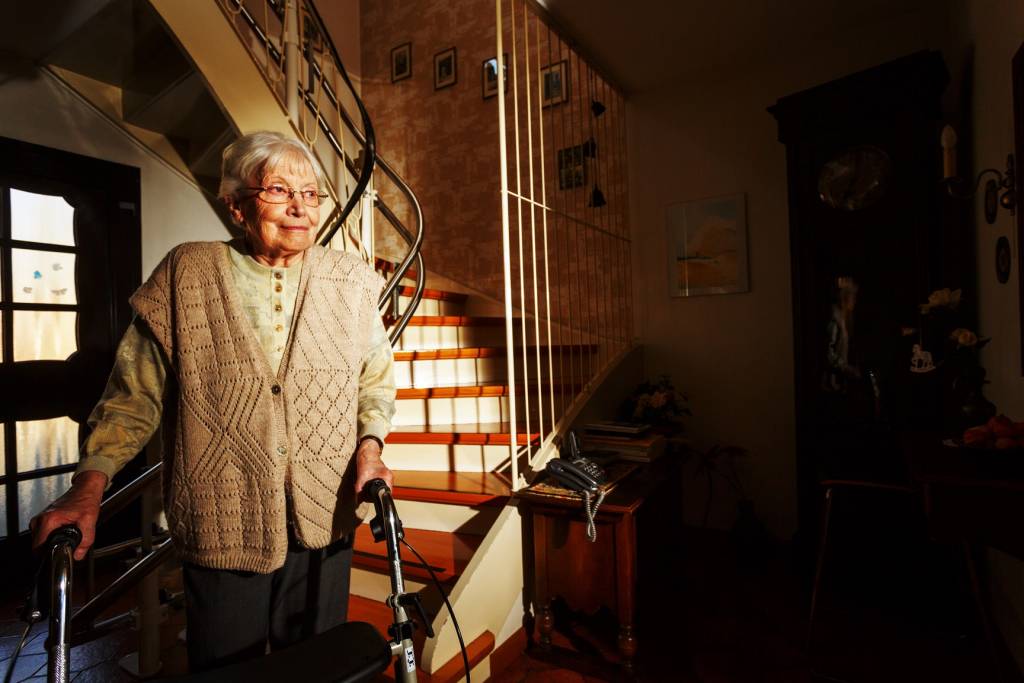
The family home is where the majority of seniors prefer to age. However, often times there are some safety issues people might overlook.
The ideal senior’s home is accessible to people of any age and ability level. Whether the older adult is mobile or uses a wheelchair or other mobility device to move around, a universal design is the most advantageous. A universal design is simply one that promotes aging in place.
Homes that are built with or are modified to include universal design principles enhance an occupant’s ability to navigate the home with ease. Wide hallways, open floorplans, and light switches at correct heights are examples of universal design. These design elements reduce the risk of falls and injuries.
Modifying the home environment so that it is safe for older people makes aging in place a practical reality. Here are several home safety tips to protect the comfort and overall wellbeing of an elderly loved one.
1. Entrance Safety Tips
A senior should be able to enter the home without obstacles. Family caregivers should clear the path from the driveway to the front door. Remove any loose bricks from the walkway. Repair walkway cracks to prevent the senior from stumbling over them. Trim bushes on the path for wheelchair users.
The senior will make his way up the entry steps, so ensure that handrails are available on either side of the steps. Each stair should be deep enough to hold one foot. Non-slip stair treads are advisable. Consider installing a ramp to assist a senior using a wheelchair.
2. Kitchen Safety Tips
It is important to modify the kitchen, where seniors prepare their meals. Levers or pulls on the cabinets are easier to use than knobs. Climbing a step stool to access items on high shelves is unsafe; avoid the risk of injury by moving items to the counter or lower shelves.
If the senior still cooks, oven safety is critical. Oven controls, for instance, should be at the front of the appliance, rather than the rear, to prevent reaching over the stove. Controls must be easy to use and clearly labeled. Replace small appliances with ones that feature an automatic shutoff.
3. Bedroom Safety Tips
Seniors will spend significant time in a bedroom. The elderly person’s bed must be at an ideal height—neither too high or too low—to facilitate easy transfers. A riser or a low-profile box spring can conveniently add to or lower the height of the senior’s bed.
The path to the bed should be clear of clutter, furniture or rugs over which the senior can trip. Caregivers may consider positioning a commode near the senior’s bed so that he can avoid nighttime trips to the bathroom. Also place a working flashlight on the bedside table.
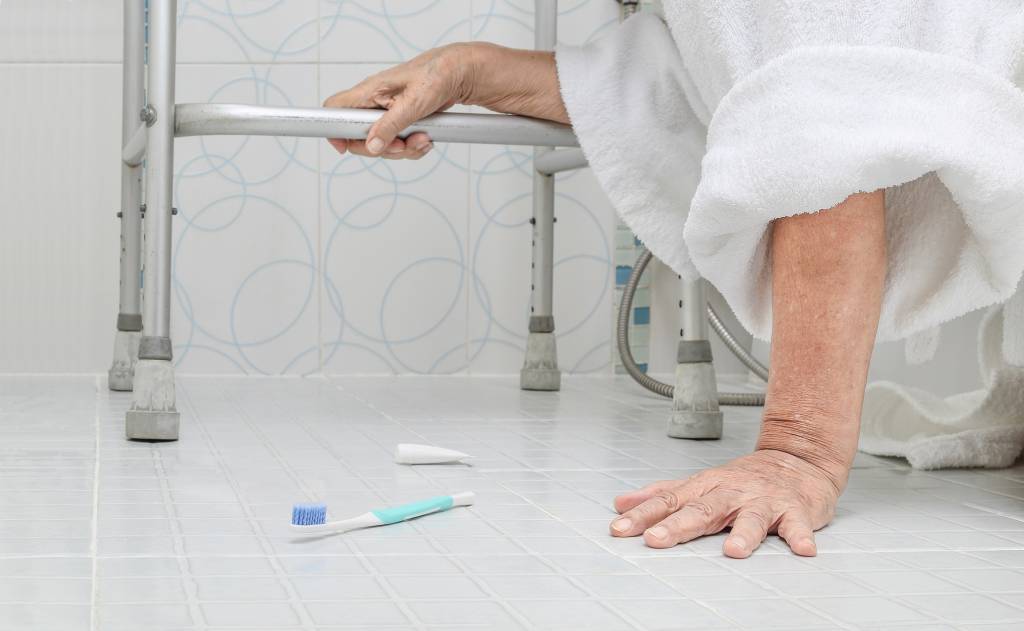 4. Bathroom Safety Tips
4. Bathroom Safety Tips
Grab bars are key to preventing slips on the wet, slick bathroom floors. Install grab bars in the shower and near the toilet so that seniors can use them for support. Bathroom floors are a hazard when wet, making it important that they be slip-resistant and offer plenty of traction.
Replace the knobs on the bathroom cabinetry with easy-to-use levers or pulls. Toilets that are designed to be two inches higher than standard ones are more accessible for seniors. Consider adding a toilet seat riser to accommodate the need for additional height.
Lighting in the bathroom is especially important for seniors with poor eyesight. Add incandescent lights to the ceiling over the shower/tub for extra visibility. Ample lighting in the hallway leading to the bathroom is critical during nighttime rushes to use the toilet.
5. General Household Safety Tips
Smoke alarms and carbon monoxide detectors should be installed in all key areas of the home and tested regularly. Tuck electrical cords and cables behind the furniture to reduce the risk of the senior tripping over them; remove all cords that run across walkways.
Post emergency contact information on the fridge; include the numbers for family members, doctors, friends, neighbors and the police and fire departments. First-aid kits containing antibacterial creams, Band-Aids, and other basic first-aid items should be placed in an accessible location.
Home safety also means reminding the senior to never open the door to strangers, especially when home alone (consider taping a reminder note on the front door). Ensure the front door features a peephole at the right height. Keep all doors and windows locked.
6. Checking in to Ensure Safety
Families are urged to call an elderly loved one regularly. Relatives may drop in unexpectedly to assess the condition of the home and the senior’s welfare. Give the senior a medical alert device so that help may be contacted in the event of a fall or other emergency.
Elderly Care Services
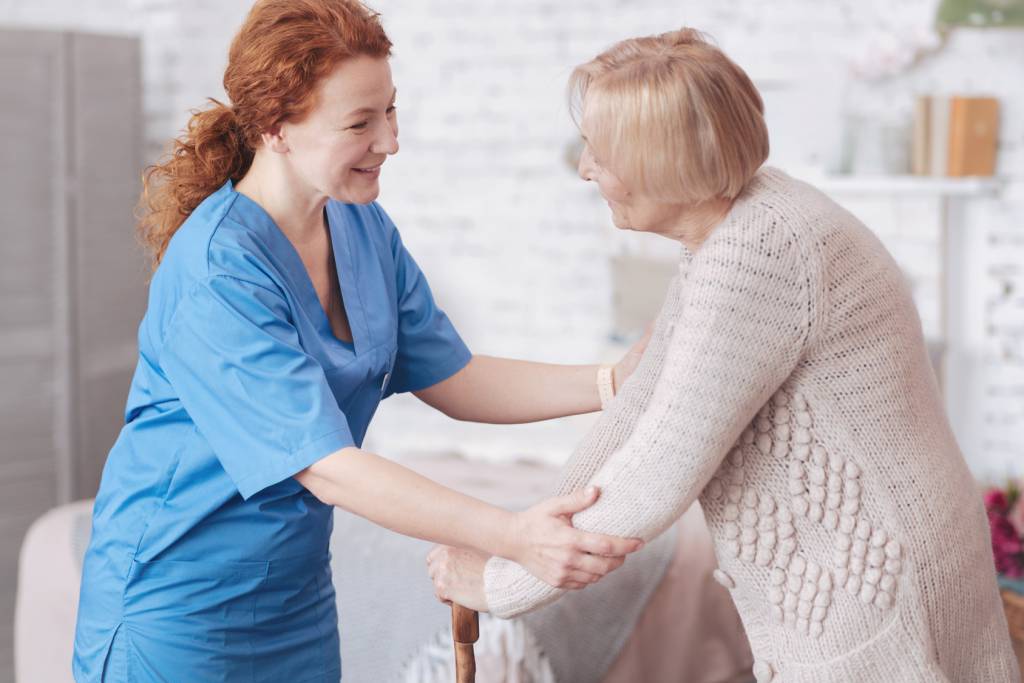 One of the best home safety tips, in addition to the aforementioned ones, is to hire a professional caregiver from Assisting Hands Home Care. Experienced caregivers monitor the senior’s well-being during the day and/or night and provide in-home support with the activities of daily living.
One of the best home safety tips, in addition to the aforementioned ones, is to hire a professional caregiver from Assisting Hands Home Care. Experienced caregivers monitor the senior’s well-being during the day and/or night and provide in-home support with the activities of daily living.
Our skilled caregivers are trained to offer discreet assistance with personal hygiene tasks, like toileting, bathing, and grooming. We prepare healthy meals so that care recipients are well-nourished. Light housekeeping is a part of our core responsibilities. Caregivers also provide safe transportation.
Assisting Hands Home Care elder care services are flexible and designed to meet the various scheduling needs of busy families. We are available for short-term care via our respite care services. Live-in care, 24-hour care, post-operative care, companion care, and hospice care are additional care options.
Families depend on Assisting Hands Home Care for the most comprehensive, nonmedical elder support. Each caregiver is licensed, bonded, and insured to provide families with maximum peace of mind. Plus, the continuation of care is guaranteed—we’ll dispatch a caregiver if the original calls in sick.
Assisting Hands Home Care is the number one choice for compassionate senior care. Our caregivers are available to serve seniors living in Park Ridge, Illinois. When your elderly loved one is ready for extra support, call us to schedule an in-home assessment and begin quality home care.
Schedule a Free Consultation
For more information regarding our elderly care services in the Schaumburg or Park Ridge, IL area, contact Assisting Hands Home Care at (847) 796-6685.

